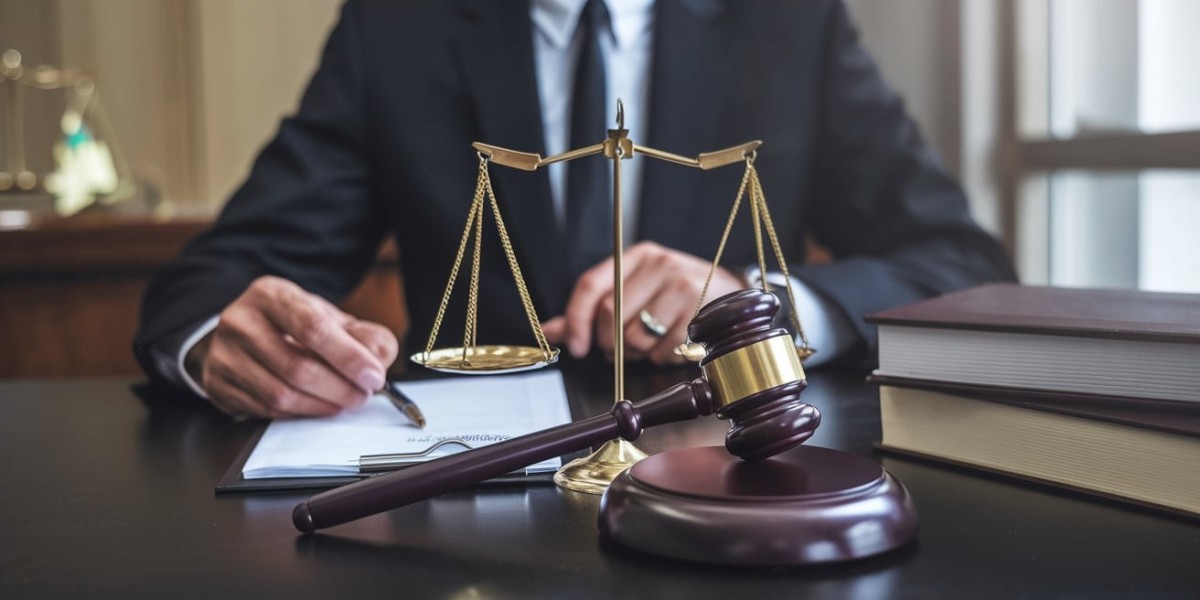The Significance of Criminal Defence Lawyers in Upholding Justice
Role of Criminal defence lawyers in Australia’s legal system is to provide legal representation to individuals accused of criminal offences, ensuring that justice is served fairly and impartially. Without defence lawyers, the fundamental principle of justice — that every person is entitled to a fair trial — would be compromised. These legal professionals act as a safeguard against wrongful convictions, prosecutorial overreach, and the erosion of civil liberties.
How Criminal Defence Lawyers Contribute to a Fair Legal System
By advocating for the accused, criminal defence lawyers uphold the integrity of the legal process. They challenge evidence, cross-examine witnesses, and ensure that law enforcement agencies operate within legal parameters. Their presence levels the playing field, preventing the prosecution from having unchecked power. Moreover, they contribute to legal reform by highlighting flaws and inconsistencies in the justice system.
Understanding Criminal Defence Lawyers in Australia
Who is a Criminal Defence Lawyer?
A criminal defence lawyer is a legal professional who specialises in defending individuals and organisations charged with criminal offences. They navigate complex legal procedures, interpret statutes, and construct compelling arguments to protect their clients’ rights. Defence lawyers work in private practice, as public defenders, or within legal aid organisations.
Key Qualifications and Training Required to Practice Criminal Defence Law
To become a criminal defence lawyer in Australia, an individual must complete:
- A Bachelor of Laws (LLB) or Juris Doctor (JD) from an accredited university.
- Practical Legal Training (PLT) to gain real-world experience.
- Admission to the legal profession through the relevant state or territory’s Legal Admissions Board.
- Ongoing professional development to stay updated with evolving laws and legal precedents.
The Rights of the Accused: Legal Protections in Australia
Presumption of Innocence and the Burden of Proof
In Australia, the presumption of innocence is a fundamental principle. Every individual is considered innocent until proven guilty beyond a reasonable doubt. The burden of proof lies with the prosecution, ensuring that the accused does not have to prove their innocence. This protection prevents wrongful convictions and upholds the integrity of the legal system.
The Right to Legal Representation and a Fair Trial
Australian law guarantees the right to legal representation. If an individual cannot afford a private lawyer, they may be eligible for legal aid. A fair trial involves impartial judicial proceedings, the right to present evidence, and protection against self-incrimination. Defence lawyers ensure these rights are upheld, advocating for their clients at every stage of the legal process.
Key Responsibilities of a Criminal Defence Lawyer
Providing Legal Advice and Case Evaluation
A defence lawyer assesses the strength of the prosecution’s case, advises clients on potential legal strategies, and explains the possible outcomes. They help clients understand their rights and the legal ramifications of their charges.
Defending Clients in Court Proceedings
Defence lawyers represent clients in court, presenting arguments, examining witnesses, and challenging prosecution evidence. They employ legal precedents and case law to build strong defences.
Negotiating Plea Bargains and Sentencing Reductions
When appropriate, defence lawyers negotiate plea deals with prosecutors to secure reduced charges or lighter sentences. This approach can be beneficial in cases where avoiding a full trial is in the client’s best interest.
Challenging Evidence and Legal Procedures
Defence lawyers scrutinise the legality of police actions, forensic evidence, and witness statements. If evidence was obtained unlawfully or procedures were violated, they may seek to have it excluded from the case.
The Criminal Justice Process: Where Defence Lawyers Fit In
The Role of a Defence Lawyer During Police Investigations
During police interrogations, defence lawyers ensure that clients do not incriminate themselves. They guide individuals through questioning and protect them from coercive tactics.
Legal Representation During Bail Hearings
Defence lawyers argue for bail, presenting reasons why the accused should be released pending trial. They highlight factors such as stable employment, family responsibilities, and community ties.
The Trial Process and Courtroom Advocacy
In trial proceedings, defence lawyers challenge the prosecution’s case, cross-examine witnesses, and introduce evidence supporting their client’s innocence.
Appeals and Post-Conviction Legal Support
If a conviction occurs, defence lawyers may appeal the decision, arguing errors in law or new evidence that warrants reconsideration.
Defending Different Types of Criminal Charges
Legal Defence for Summary Offences and Minor Charges
Summary offences, such as public intoxication or traffic violations, are handled in lower courts. Defence lawyers aim to minimise penalties and prevent criminal records.
Representing Clients in Indictable Offences and Serious Criminal Cases
Indictable offences, including violent crimes, are tried in higher courts. Defence lawyers construct comprehensive strategies to challenge severe charges.
Defence Strategies in White-Collar Crime Cases
White-collar crimes, such as fraud and embezzlement, require meticulous analysis of financial records and expert testimony.
Handling High-Profile and Complex Criminal Cases
High-profile cases attract media attention, making strategic defence planning essential. Lawyers manage public perception while ensuring their client’s rights are not compromised.
Building a Strong Defence Strategy
Analysing Evidence and Identifying Weaknesses in the Prosecution’s Case
Defence lawyers dissect evidence, uncover inconsistencies, and expose weaknesses in the prosecution’s arguments.
Cross-Examining Witnesses and Expert Testimony
Cross-examination reveals biases, contradictions, and inaccuracies in witness statements.
Legal Loopholes and Procedural Errors That Can Benefit the Defence
Identifying technical errors, such as unlawful searches or procedural missteps, can lead to case dismissals.
Ethical Duties and Professional Conduct of Criminal Defence Lawyers
Confidentiality and Lawyer-Client Privilege
A defence lawyer must maintain strict confidentiality to protect client trust and case integrity.
Ethical Obligations to Provide a Fair and Just Defence
Regardless of personal beliefs, defence lawyers must advocate vigorously for their clients.
Balancing Legal Representation with Moral Considerations
Representing guilty individuals poses ethical dilemmas. Defence lawyers focus on due process and the rule of law.
Working with Other Legal Professionals
Collaboration with Barristers and Legal Experts
Defence lawyers often work alongside barristers who represent clients in higher courts.
Engaging Forensic Specialists and Private Investigators
Expert analysis can uncover crucial evidence that strengthens the defence.
Interacting with Prosecutors and Negotiating Plea Deals
Skilled negotiation can result in reduced sentences or dropped charges.
Challenges Faced by Criminal Defence Lawyers
Managing Public Perception and Media Scrutiny
High-profile cases often attract media attention, requiring careful reputation management.
Dealing with Difficult and High-Stakes Cases
Defending individuals accused of serious crimes comes with immense responsibility.
The Emotional and Mental Toll of Defending Serious Offenders
Defence lawyers must navigate the psychological impact of handling distressing cases.
Choosing the Right Criminal Defence Lawyer in Australia
What to Look for in a Skilled Criminal Defence Lawyer
Experience, expertise, and a strong track record are crucial when selecting legal representation.
The Importance of Experience and Expertise in Specific Legal Areas
A lawyer’s specialisation in particular types of criminal cases can influence case outcomes.
How to Find Reputable Legal Representation
Researching reviews, seeking referrals, and consulting legal associations help in finding a competent lawyer.
Conclusion
Criminal defence lawyers in Australia play a pivotal role in safeguarding justice. Their expertise ensures fair trials, protects individual rights, and upholds the rule of law in Australia.







